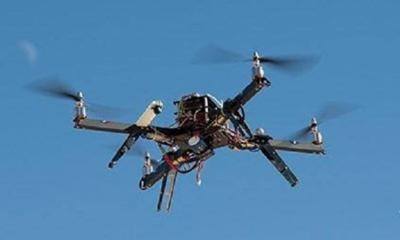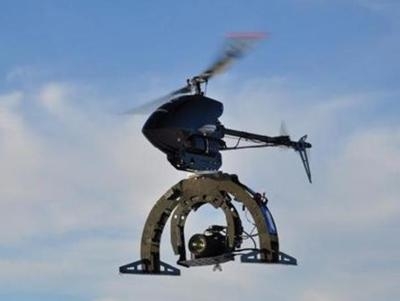Mon, Sep 29, 2014
Association Cautions Manufacturers That Traveling With The Aircraft May Require Special Considerations
As Unmanned Aerial Vehicles – or UAVs – become more commercially available and the list of industries utilizing the technology expands, companies should be aware of the stringent transportation regulations applicable to the lithium ion batteries that power virtually every UAV.

These transportation regulations address the packaging, testing and size limitations (in Watt-hours and kilograms) of lithium ion batteries and UAVs (packed with lithium ion batteries). The rules also specify the number and size (in Watt-hours) of lithium ion batteries that may be carried on aircraft by passengers.
Major companies including Amazon and Google as well as the agriculture, film, journalism, telecommunications and real estate industries are discovering ways to maximize the commercial viability of small unmanned aircraft. UAVS are also being deployed to assist law enforcement in searches for missing persons and by nonprofits in peacekeeping and peacebuilding efforts. Researchers are using the unmanned aircraft to study and save wildlife.
A report by the Association for Unmanned Vehicle Systems International found the industry could create more than 100,000 new jobs and over $80 billion in economic benefits within 10 years after integration of UAVs into the U.S airspace system.

The FAA is expected to announce proposed rules for small commercial drones later this year. However, lithium ion batteries, the engine of the UAVs, are already stringently regulated by the FAA as hazardous materials (also known as "dangerous goods"). The FAA and other transport authorities around the world issue regulations that shippers of UAVs must comply with and that passengers must adhere to when carrying lithium ion batteries onboard an aircraft. Failure to comply with these regulations can result in significant civil penalties levied against companies whose employees are found to be in violation of these regulations.
If a company's employee is traveling with a UAV and spare lithium ion batteries, the U.S. and international hazardous materials regulations strictly prohibit spare lithium ion batteries from being placed in checked baggage. In addition, lithium ion batteries carried on the aircraft by passengers generally may not exceed 100 Watt-hours. However, slightly larger lithium ion batteries exceeding 100 Wh, but not exceeding 160 Wh, may be carried onboard the aircraft with the approval of the airline. No more than two of these slightly larger lithium ion batteries may be carried on the aircraft.
(Images from file)
More News
He Attempted To Restart The Engine Three Times. On The Third Restart Attempt, He Noticed That Flames Were Coming Out From The Right Wing Near The Fuel Cap Analysis: The pilot repor>[...]
Make Sure You NEVER Miss A New Story From Aero-News Network Do you ever feel like you never see posts from a certain person or page on Facebook or Instagram? Here’s how you c>[...]
From 2009 (YouTube Edition): Leading Air Show Performers Give Their Best Advice for Newcomers On December 6th through December 9th, the Paris Las Vegas Hotel hosted over 1,500 air >[...]
Aero Linx: NASA ASRS ASRS captures confidential reports, analyzes the resulting aviation safety data, and disseminates vital information to the aviation community. The ASRS is an i>[...]
“For our inaugural Pylon Racing Seminar in Roswell, we were thrilled to certify 60 pilots across our six closed-course pylon race classes. Not only did this year’s PRS >[...]
 NTSB Final Report: Rutan Long-EZ
NTSB Final Report: Rutan Long-EZ ANN FAQ: Turn On Post Notifications
ANN FAQ: Turn On Post Notifications Classic Aero-TV: ICAS Perspectives - Advice for New Air Show Performers
Classic Aero-TV: ICAS Perspectives - Advice for New Air Show Performers ANN's Daily Aero-Linx (06.28.25)
ANN's Daily Aero-Linx (06.28.25) Aero-News: Quote of the Day (06.28.25)
Aero-News: Quote of the Day (06.28.25)




